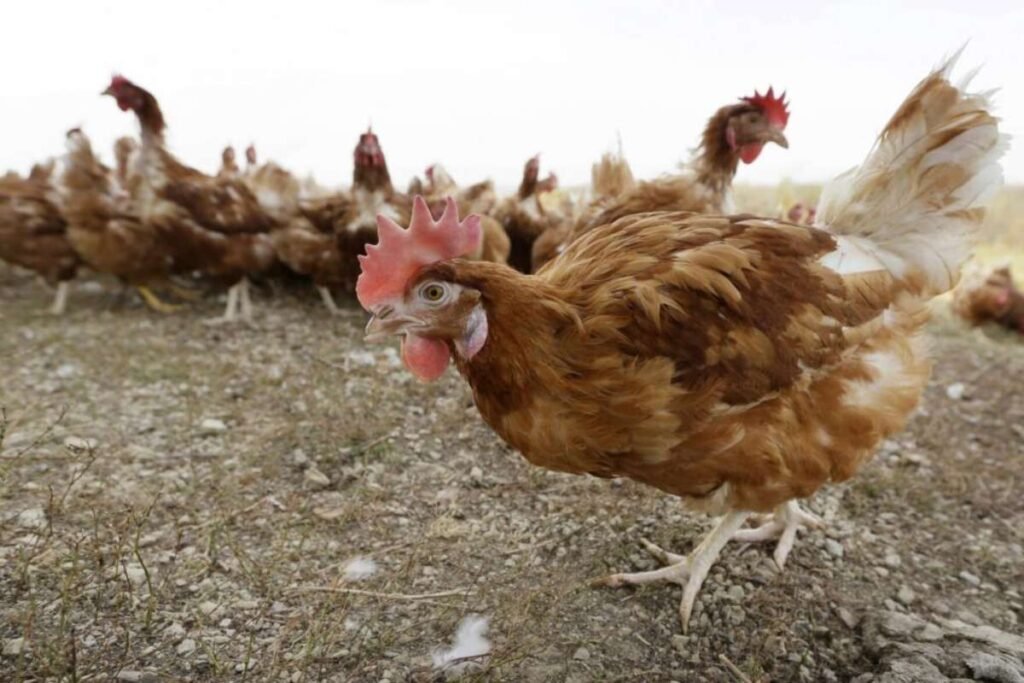California Declares Emergency Over Bird Flu in response to the rapid spread of bird flu, which has now impacted dairy cows in the state and caused sporadic illnesses in people across the U.S. This development raises concerns about the virus, which has been circulating among wild birds, commercial poultry, and various mammal species for years.
The virus, scientifically known as Type A H5N1, was first detected in U.S. dairy cattle in March. Since then, bird flu has been confirmed in at least 866 herds across 16 states. Additionally, over 60 people in eight states have been infected, with most experiencing mild symptoms. However, the first severe case of bird flu in the U.S. was recently reported in Louisiana, where a patient has been hospitalized.
Why Did California Declares Emergency Over Bird Flu?
Governor Gavin Newsom declared California declares emergency over bird flu to better equip state agencies with the resources needed to combat the outbreak. Bird flu has been found in California’s dairy industry, with the virus detected in at least 650 herds, representing roughly three-quarters of all affected U.S. dairy herds.
Initially confined to the Central Valley since August, the virus has recently been identified in Southern California dairy farms. Officials have also been testing milk tanks during processing to monitor the spread.
The state emphasized that the emergency declaration is a proactive measure to ensure a swift and effective response to the outbreak.
What Is the Risk to the General Public?
According to public health officials, the virus currently poses a low risk to the general public. There are no indications of person-to-person transmission, nor any evidence that the virus has mutated to spread more easily among humans.
Flu experts agree with this assessment but remain cautious, as flu viruses are known to mutate rapidly. Even small genetic changes could alter the trajectory of the outbreak, potentially increasing the risk to humans.
While the situation remains under observation, researchers emphasize the need for vigilance, particularly as the virus continues to spread among animals.
Are Cases Becoming More Severe?
The first known case of severe illness in the U.S. has been confirmed in Louisiana. The patient, who is over 65 and has underlying health conditions, is in critical condition after developing severe respiratory symptoms. The individual reportedly had contact with a backyard flock of sick birds, making this the first U.S. case tied to backyard poultry.
Previous infections in the U.S. have been largely mild and primarily occurred in farmworkers with direct exposure to infected dairy cattle or poultry. In rare instances, such as cases in Missouri and California, the exact mode of transmission could not be determined.
Globally, H5N1 has infected nearly 1,000 people since 2003, with a mortality rate exceeding 50%, according to the World Health Organization. Experts caution that even mild outbreaks can escalate if the virus mutates or spreads more widely among humans.
How Can People Protect Themselves?
Individuals in close contact with dairy cows, commercial poultry, or backyard birds are at higher risk and should take precautions. Public health experts recommend using protective gear such as gloves, eye protection, and respiratory masks when handling potentially infected animals.
Farmworkers are also encouraged to monitor for symptoms and seek medical attention if they suspect exposure. The Centers for Disease Control and Prevention (CDC) has provided seasonal flu vaccines for farmworkers to reduce the risk of co-infections that could potentially allow the bird flu virus to mutate.
People should also be cautious when handling sick or dead birds. Experts stress the importance of avoiding contact and reporting cases to health authorities for further investigation.
How Is Bird Flu Being Spread?
The H5N1 virus can spread through direct contact with infected animals and their waste, as well as through contaminated raw milk. While pasteurized milk is safe to consume, unpasteurized milk can carry high levels of the virus.
Recently, raw milk sold in California stores was recalled after the virus was detected in dairy farms and related products. In Los Angeles County, two indoor cats fed raw milk from a recalled batch died from bird flu infections. Officials are investigating additional reports of sick pets.
Public health authorities continue to warn against drinking raw milk, as it can spread a range of harmful pathogens in addition to bird flu.
The Road Ahead
As California declares emergency over bird flu to the outbreak, the focus remains on controlling the virus among animals while minimizing risks to humans. The declaration of a state of emergency underscores the seriousness of the situation and highlights the need for swift action to prevent further spread. While the current risk to the public is low, officials urge continued vigilance and adherence to safety guidelines to limit the potential impact of bird flu.










